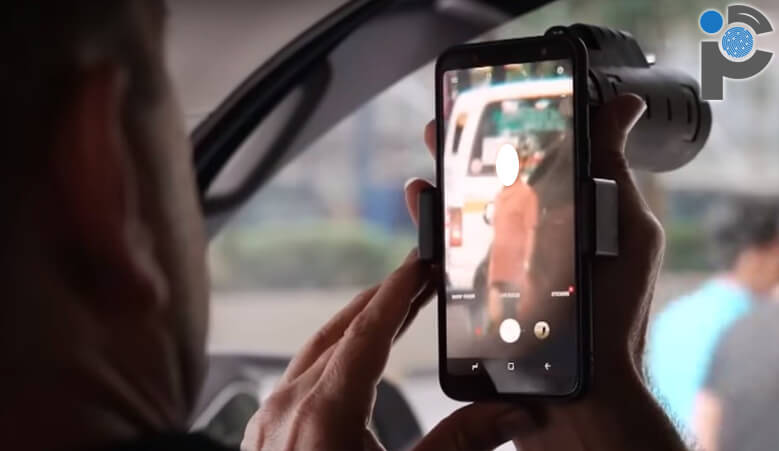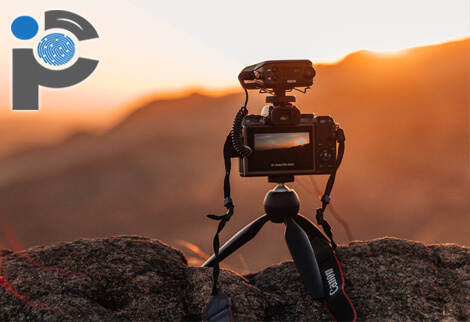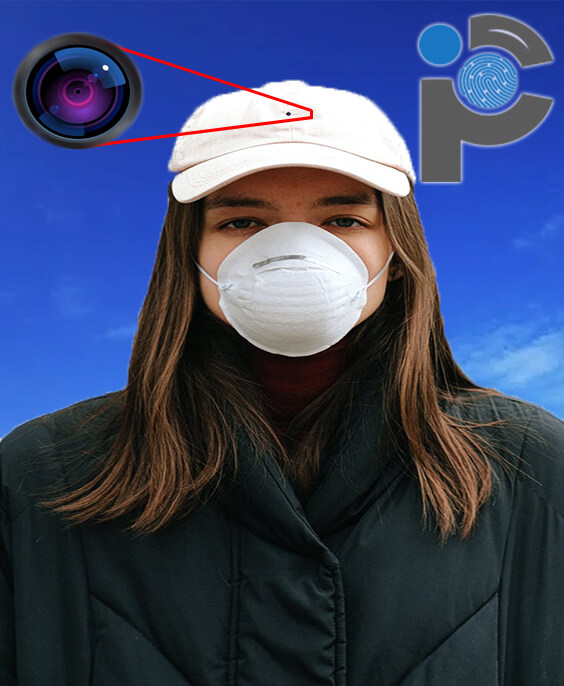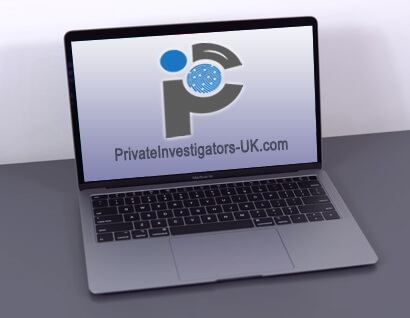Essential Equipment & Gadgets for Private Investigators
February 19, 2021 - Reading time: 13 minutes
Updated on: August 27, 2025
Private investigation is an area which relies heavily on different gadgets and new forms of technology. As new equipment is constantly being developed and released, competent private detectives should try to familiarize themselves with the latest technology as much as possible. In many cases, having the right tool for the job can make the difference in reaching a successful outcome.
Of course, much depends on the individual preferences and techniques favoured by the particular agent, as well as the environment and circumstances surrounding the case. When it comes to surveillance, we believe that there is not always one correct way of doing things, or one correct piece of gear which should be used. We have however written this article to provide tips and a general guide.
This article will touch on some of the equipment and gadgets which many detectives find essential during their work on surveillance assignments.
1. Mobile phone

Photo: An Australian federal police investigator uses a mobile phone fitted with a lens attachment to photograph a subject during a surveillance operation.
Mobile phones an essential tool for private detectives. From providing directions to an assignment with GPS navigation, or communicating with clients, or even collecting audio/photo/video in some cases, the mobile phone has an infinite number of different uses during private investigations.
What type of phones do private investigator use?
Although this is really a matter of personal preference, many private investigators favour the latest model iPhone for use at work, others may prefer an Android based device and choose a Samsung device. When a mobile phone is being relied on during assignments, it really pays to have a decent device which is on the higher end of the scale. Having a more powerful processor in your phone, and more RAM, can make a noticeable difference in the amount of time it can take to perform tasks. Higher end phones typically have better cameras and image sensors which can also make a big difference.
Although some firms frown on the use of mobile phones to collect evidence during surveillance cases, the practice is becoming more and more common as camera technology has continued to gradually improve… Although a mobile phone may not be suitable for taking long range photos, if the subject is in a confined space then collecting good photos/videos at short range can be achieved with relative ease. Although it should be noted that having a practiced sleight of hand, and a rehearsed technique of discreetly taking photo/video in this way can make a big difference in the end results.
Mobile phone accessories
- Privacy screen protectors
In cases where surveillance is taking place in a crowded area, using a privacy film on the phone’s screen can be beneficial. Privacy phone screen protectors work by blocking vision of the screen unless it is being viewed from straight on. This means that no-one sitting or standing next to you is able to read messages on your phone or see what is on your phone screen – this is the theory at least. Using a privacy screen protector can be useful when a phone is being used in crowded areas, and with the legal minefield surrounding data protection, protecting your phone screen can be a good idea if you are dealing with private information.
Privacy film protectors work best when the screen brightness is turned as low as possible. In addition to mobile phones, they can also be used on laptops and tablets.
- Power bank
If an assignment has the potential to continue for a prolonged period, then a fully charged power bank may come in useful if there is no other source of power available.
- Tripods & lens attachments
A tripod should be used to stabilize mobile phones when they are being used for photography wherever possible. Although our general consensus is that a dedicated video camera or DSLR would generally produce better results, some detectives do use lens attachments to capture photos using their mobile phones, and the results can be surprisingly good in some cases.
2. Camera

Many private detectives also have a keen interest in photography and may use some very advanced (and expensive) camera setups. Being a photography geek can really help during many investigations. If the subject is very far away, for example, then a telephoto zoom lens which can zoom in on people from literally miles away, would be needed in order to stand any chance at capturing usable images. Having the knowledge to take good photographs during low light conditions, or when the subject is moving, are essential during surveillance cases.
Whatever camera setup you decide to use, having full knowledge of your equipment will be necessary, as well as a rudimentary understanding of photography, at the very least.
What type of cameras do private investigators use?
The answer to this question all comes down to personal preference and the location of the assignment. However, 4K resolution is fast becoming the standard for most new camera equipment. We would recommend a good all-round camera such as the Canon EOS Rebel SL3, which offers 4K and a vari-angle touch screen. The Sony FDR-AX53 4K is another very popular choice for private detectives, due to its Sony's SteadyShot technology which does a good job at keeping videos stable.
When selecting a camera, it would be wise to consider how it will be used and choose an appropriate device. During static surveillance, for example, a popular tactic is to position a camera towards a vehicle or property, and then connect an external monitor to the camera. This allows the agent to keep an eye on the target while remaining out of sight themselves, and is another reason for the Sony FDR-AX53's popularity in detective circles.
In some cases where video is being taken at close range, action cameras such as the GoPro can also be used. Covert body cameras, or "bullet cameras" are slightly more discreet than action cameras and are also favoured by many private detectives.
Surveillance agents will typically collect a variety of cameras or lenses and choose the most appropriate tool for the job in each case.
Covert cameras used by private investigators
Covert, or "hidden" cameras can be concealed in virtually any object or item of clothing, and they come in useful during a wide variety of different cases. A competent detective will often have a covert camera on hand which they can use should the need arise. We typically use covert cameras which are concealed in accessories that can be incorporated into many different outfits.

Photo: Cameras hidden in headwear can be incorporated into many different outfits easily and quickly. This agent is photographed wearing a camera hidden in a baseball cap.
3. Laptop

Photo: MacBooks are great pieces of kit, but are they a must have for private detectives?
Laptops are essential pieces of kit for private investigators. From writing reports to e-mailing clients and editing photos or videos, many tasks could not be completed on the fly without a laptop computer.
What type of laptops do private investigators use?
Any laptop with sufficient power can be used during private investigations. Realistically, editing photos or videos will be the most resource heavy activity that a private investigator requires. Many detectives choose to purchase the latest and best Apple MacBooks, however any laptop which is capable of running your chosen editing software without problems (such as Photoshop or Premiere Pro), will suffice in most cases. High-end laptops such as those made by Apple have the advantage of being higher quality and with higher specifications, and are usually worth the investment if you are not constrained by a budget, however, any laptop with enough processing power can be used in most cases.
We recommend upgrading the hard drive in your laptop to an SSD (Solid State Drive) - if your laptop is not already fitted with an SSD, then upgrading from a traditional HDD (Hard Disk Drive) will usually make the laptop run much, much faster; there is also less chance that you will lose data through the drive failing or malfunctioning. If you are using your laptop for any kind of important work, then upgrading the drive would be a wise investment.
Netbooks and tablets, while useful for performing many tasks such as responding to e-mails, are typically not a replacement for laptops. The power and versatility which comes from a laptop cannot be replaced with these devices in most cases, although we have seen cases where agents use high end tablets to manipulate photos/video, most detectives tend to rely on laptops whilst performing their duties.
4. GPS trackers
![]()
GPS tracking devices are being used by private investigators more now than at anytime before, and it's easy to understand why. By using GPS trackers, detectives are able to track the whereabouts of a vehicle or person at anytime, and also plot the past locations on a map. This information can help us to decide which dates and times are best for us to conduct surveillance and collect incriminating photos or video.
GPS trackers are typically very small and can be quickly attached to vehicles in a matter of seconds. Private detectives generally learn the best locations to conceal trackers depending on the type of vehicle - each car has crevices which can be used to conceal a tracking device in a matter of seconds. When our client advises us that they require a GPS tracking device to be installed, we will typically ask them which make/model of vehicle they would like to track. We can then decide the best location for a tracking device; this may also depend on how and where the target vehicle is parked. The battery life of the tracker will depend on which device we are using in your case.
Please read our GPS tracker installation service page for more information on this subject.
5. Provisions
Occasionally we are asked to perform surveillance for a fixed amount of time such as 8 hours, and during this allotted time we might observe something interesting or unexpected - perhaps we have observed the subject incriminating themselves and there are likely to be more opportunities to photograph them if we continue. In some cases our clients will decide that they would like to extend the surveillance for a longer time, and if we are able to accommodate these requests then we will typically do so.
For this reason, we always try to ensure that our agents are prepared for their assignment and possibly even overtime. The provisions that a private detective are likely to need could be anything from fuel for their car, electricity for their camera gear (and/or a battery pack which can be used to recharge camera gear), food/drinks, money, and anything else that they are likely to need.
PrivateInvestigators-UK
If you enjoyed reading this post, check out these related articles:
You are reading the PrivateInvestigators-UK blog — home to the UK's leading detective agency. Learn more about us by visiting our homepage PrivateInvestigators-UK.com.